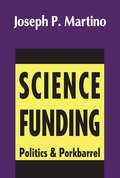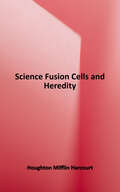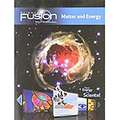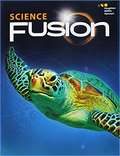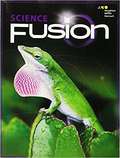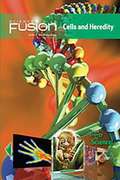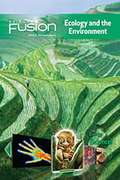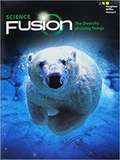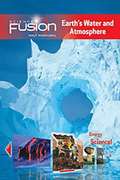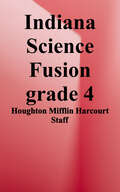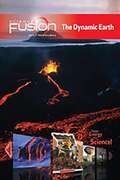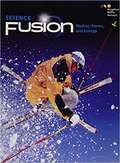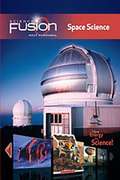- Table View
- List View
Science Funding: Politics and Porkbarrel
by Joseph MartinoAmericans have become resigned to seeing Congress vote money for porkbarrel projects of all kinds-roads, dams, post offices, military installations-in the districts of influential legislators. In recent years Congress has, almost without public notice, extended this form of vote-buying and pandering into a new domain: science. Where formerly scientific funding proposals were evaluated by outside experts on the basis of merit, there is now an increasing consideration of congressional districts and "fair" geographical distribution. In this ground-breaking volume, Joseph P. Martino offers a critical examination of special-interest funding and the danger it poses to the integrity of American society as a whole, as well as to its scientific component.Science Funding is distinguished by its comprehensive approach to the structural and historical background of the current situation. It examines the history of science funding from the early twentieth century through present, public vs. to taxpayers, instances of fraud, and the effects of government funding for research in universities.Martino's survey demonstrates conclusively that government has been inefficient in its funding capacity and that the shortcomings are inherent: political criteria for the support of science, congressional micromanagement, freezing out of innovative ideas, and the favoring of massive projects-Big Science-over small, but significant experimental programs. In his concluding chapter Martino provides an agenda for new thinking on the funding of science. He proposes alternatives that suggest a plurality of approaches is preferable to the current monolithic model, and shows how industrial support, philanthropy, and contributions from the public can be made more effective. Science Funding is a major work on the interaction of science, politics, and society. It will be of interest to sociologists, policymakers, and political scientist, and the research science community.
Science Fusion
by Houghton Mifflin HarcourtScienceFusion: Student Edition Interactive Worktext Module A Module A: Cells and Heredity 2017
Science Fusion (Grade 5 Hudson County New Jersey)
by Marjorie Frank Donna Ogle Michael A. Dispezio Michael Heithaus5th grade Science textbook
Science Fusion - Matter and Energy
by Houghton Mifflin HarcourtScience Fusion - Matter and Energy 2017 Grades 6 -8 Science Textbook
Science Fusion Module H: Matter And Energy
by Houghton Mifflin Harcourt Publishing Company StaffScience Fusion encourages students to fully engage with the fundamental steps of science: inquiring, thinking, predicting, analyzing, and applying. Students will think critically and use their reasoning skills as they learn new content, applying what they've learned to online content, activities, and labs. In Module H: Matter and Energy, middle-school students will learn about matter, temperature, effects of energy transfers, electron and chemical bonding, nuclear reactions, acids, bases, salts, and other concepts integral to matter and energy
Science Fusion [Grade 2]: Interactive Worktext Grade 2 2017 (Sciencefusion Ser.)
by Marjorie Frank Michael Heithaus Michael DiSpezioNIMAC-sourced textbook
Science Fusion [Grade 3]: Interactive Worktext 2017 (ScienceFusion Ser.)
by Marjorie Frank Michael R. Heithaus Michael A. DiSpezioNIMAC-sourced textbook
Science Fusion [Grade 4]: Student Edition Interactive Worktext 2017 (Sciencefusion Ser.)
by Marjorie Frank Michael Heithaus Michael DiSpezioNIMAC-sourced textbook
Science Fusion [Grade 5]
by Marjorie Frank Michael A. Dispezio Michael HeithausNIMAC-sourced textbook
Science Fusion [Grade 5] Volume 1
by Marjorie Frank Michael A. Dispezio Michael HeithausNIMAC-sourced textbook
Science Fusion [Grade 5] Volume 2
by Marjorie Frank Michael Heithaus Michael A. DiSpezioNIMAC-sourced textbook
Science Fusion, Interactive Student Edition
by Houghton Mifflin Harcourt Publishing CompanyThis learning programme consists of Cells and Reproduction and Heredity.
Science Fusion, Interactive Student Edition: Ecology and the Environment Module D
by Houghton Mifflin Harcourt Publishing CompanyStudents will be involved from the first to the last minute of every lesson in an interactive magazine-style student edition that matches the way today's students learn best. The student centered approach features:
Science Fusion, Interactive Worktext, Module B: The Diversity of Living Things (ScienceFusion Ser.)
by Marjorie Frank Michael Heithaus Michael DiSpezioNIMAC-sourced textbook
Science Fusion, Volume 2, Units 8-15, 5th Grade
by Michael A. DespezioScience Fusion textbook for 5th Grade, Volume 2, Units 8-15 Unit 8--Changes to Earth's Surface Unit 9--The Rock Cycle Unit 10--Fossils Unit 11--Earth's Oceans Unit 12--The Solar System and the Universe Unit 13--Matter Unit 14--Light and Sound Unit 15--Forces and Motion
Science Fusion: Earth's Water and Atmosphere
by Michael Dispezio Marjorie FrankThe topics broadly covered in this book include earth's water, oceanography, earth's atmosphere, weather and climate.
Science Fusion: Interactive Worktext
by Houghton Mifflin Harcourt StaffAcknowledged authors wrote this book. The text covers the following topics: Unit 1 Scientific Methods, Unit 2 Heat and Electricity, Unit 3 Changes to Earth’s Surface, Unit 4 Adaptations and Survival, Unit 5 Forces and Transportation, and also includes Interactive Glossary and Index.
Science Fusion: Introduction to Science and Technology
by Marjorie Frank Michael R. Heithaus Michael A. DiSpezioNIMAC-sourced textbook
Science Fusion: Matter and Energy
by Marjorie Frank Michael R. Heithaus Michael A. DispezioNIMAC-sourced textbook
Science Fusion: Module E The Dynamic Earth
by The Editors at the Houghton Mifflin HarcourtLearn more about earth science in this interactive workbook.
Science Fusion: Motion, Forces, and Energy
by Marjorie Frank Michael R. Heithaus Michael A. DispezioNIMAC-sourced textbook
Science Fusion: Space Science
by Holt Mcdougal6th to 8th Grade Student Interactive text on Space Science.
